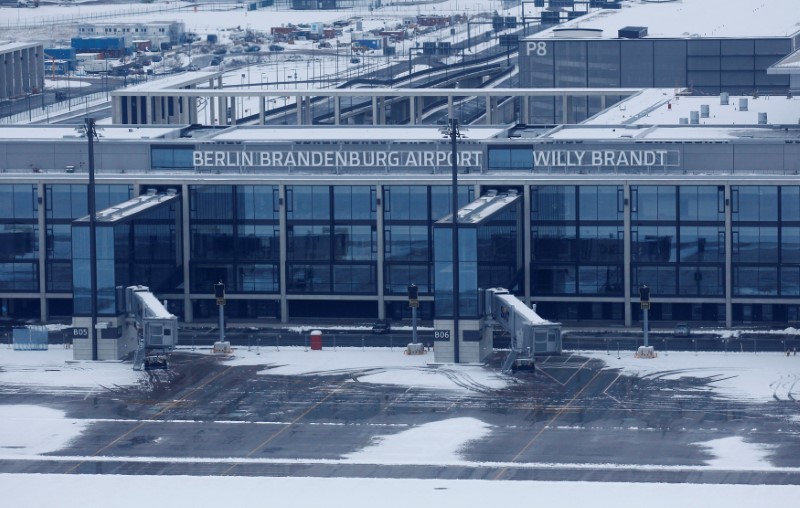By Victoria Bryan
BERLIN (Reuters) - As Berlin hosts the world's largest annual travel fair, the ITB, much talk at the show this year has been over the city's long-delayed new airport and a strike that paralysed air travel on Friday.
The German capital is currently served by two cold war airports - Tegel in the northwest and Schoenefeld to the southeast.
Berlin Brandenburg airport was due to open in 2011, but several opening dates have been postponed as the project faced red tape and technical problems with smoke ventilation systems, cabling and doors.
This week chief executive Karsten Muehlenfeld, who in January scrapped plans to open the airport at the end of 2017, was replaced by Engelbert Luetke Daldrup after a row over the firing of the project's construction head.
No new opening date has been set.
"It's such an embarrassment, they produce wonderful cars, their engineering is world class, the economy is strong, but they've got an airport they can't seem to build," said Tim Clark, the president of Emirates airline [EMIRA.UL].
The city of Berlin hopes the new airport will bring more visitors from overseas, both for business and tourism.
"It would mean that the people who would like to visit us could come, for instance from China. People want to go to the nation's capital," Burkhard Kieker, head of tourism promotion group visitBerlin said.
But Ryanair (I:RYA) chief marketing officer Kenny Jacobs said it would be too small when it opens.
Berlin's two airports served 33 million passengers last year while the new international hub, due to replace both Tegel and Schoenefeld, is set for initial capacity of 27 million.
"London has six airports and capacity for 130 million, Paris has four airports and 110 million capacity and Berlin is saying we'll be ok with capacity of 27 million and one airport?" asked Jacobs.
Travel to Germany has also been hit by a 25-hour strike by ground staff at Berlin's two airports, which led to the cancellation of nearly 700 flights on Friday, affecting tens of thousands of passengers.

That left delegates at ITB, which sees more than 10,000 companies from 184 countries touting for business, scrambling to rebook their plane tickets, change their travel dates or switch to buses and trains to return home.